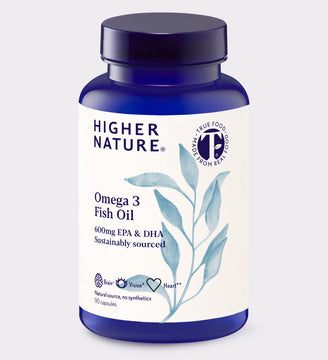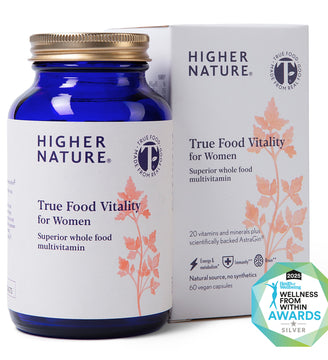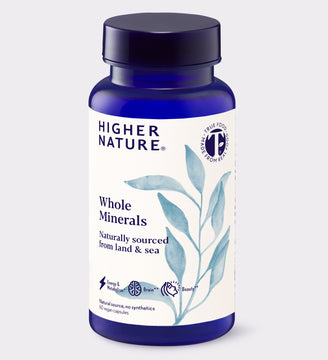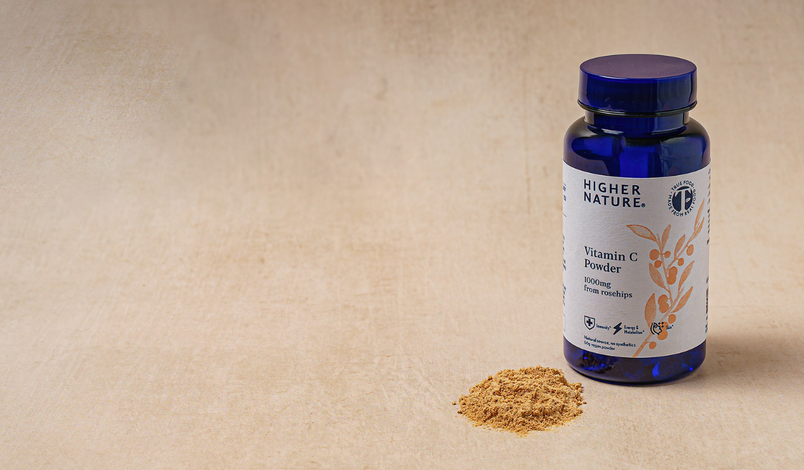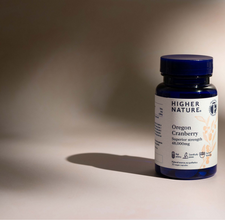
Stay sharp: how to keep your brain healthy and active
Higher Nature Nutrition Team
As we age, we may worry about the state of our brain and our mental health. For many of us, ‘senior moments’ are a feature of ageing and a reflection of the increasing demands on our brains from our hectic lifestyles. For others, they may herald the onset of dementia. Sadly, dementia is an increasing problem for our society with 850,000 people diagnosed in the UK, affecting 1 in 14 of the over 65s. Although age is the biggest risk factor, there is still plenty we can do, whatever our age, to help protect and promote the health of our brain.
Unlike other medical conditions, and despite the millions poured into research, medical science has not found a cure for dementia or a drug to effectively prevent its progression. We can, however, support our cognitive health with changes to our diet and lifestyle. Of particular interest is research carried out in the United States into a programme of lifestyle and nutritional interventions that has been shown to slow the onset of early symptoms of Alzheimer’s disease. The premise of the research is that by addressing the many factors promoting the brain’s ability to renew itself, the foundations are laid for improvements in cognitive function, which may help reduce the risk of developing dementia. So, what should we be doing?
Diet
The Mediterranean diet is often cited as one of the healthiest. Unsurprisingly, it also provides us with the building blocks for keeping our brains healthy. Key for brain health is to reduce simple carbohydrates, such as white bread, sugar and sweet food, which play havoc with insulin levels and promote inflammation. Focusing instead on plenty of fresh fruit and vegetables, rich in colourful antioxidants, vitamins and minerals, can be beneficial for our mental health. Oily fish are a natural source of the long chain omega 3 fatty acids, EPA and DHA. EPA helps reduce inflammation, a factor in dementia, and DHA is needed for brain structure. Vegetarian and vegans should boost their levels of omega 3 with nuts and seeds like flax and walnuts. Coconut oil is another source of brain friendly fats called medium chain triglycerides (MCTs). Saturated fats are much maligned but MCTs, a unique type of saturated fat, convert into ketones which provide energy for the brain.
Brain friendly nutrients
Other areas that should be considered are homocysteine levels and vitamin D status. Elevated levels of homocysteine, a naturally occurring amino acid in our blood, are associated with increased risk of Alzheimer’s disease. B vitamins, in particular B6, folic acid and B12, are most important in supporting cognitive health and help lower homocysteine. Low levels of vitamin D are also associated with dementia. Our ability to make vitamin D declines with age and use of sunscreens prevents our bodies from producing it. There are only a few food sources of vitamin D, such as eggs and sardines, so supplementation is often advised. It is also recommended to support the mitochondria, the battery like structures powering all the cells in our body, with nutrients such as co-enzyme Q10, alpha lipoic acid and acetyl-L-carnitine. These nutrients help fuel our brains as well as providing protective antioxidants.
Lifestyle
The researchers also recommend lifestyle changes supportive of brain health as we age. Try eating three hours before bed and fasting for 12 hours overnight. Poor sleep and high stress often go hand in hand and play havoc with our ability to focus as well as being detrimental to long term health. Address stress by making time for relaxing pastimes and help support your body during stressful times with rhodiola, passionflower, magnesium and B vitamins. By supporting stress, we often find that our sleep improves. If you need added help, the amino acid theanine aids sleep and 5HTP is a precursor to serotonin and melatonin, the sleep hormone. Keeping your brain stimulated is also key. Try new activities - whether you want to learn a language, take up ballroom dancing or challenge yourself with a daily crossword - it can all help.
The beauty of this protocol is that it can easily be incorporated into our daily lives and helps our mental health as well as our overall health, whatever our age.


